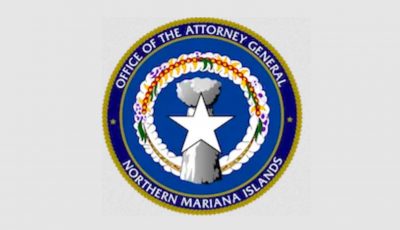THE CONSUMER CAUTION CORNER
Protecting your privacy: Phone and cable records
This week, the Office of the Attorney General’s “Consumer Caution Corner” outlines the Federal Communications Commission’s guidance on how to protect the privacy of your phone and cable records.
In a time when numerous entities collect and store personal information, you want to make sure your information is secure. The FCC has regulatory programs in place to protect your privacy.
Protecting your telephone calling records
Local, long distance, and wireless phone companies, as well as IP service providers, collect certain customer information, such as the numbers you call and when you call them. They also track the services you use, such as call-forwarding or voicemail. The companies may use, disclose, or permit access to this information in these circumstances:
• As required by law;
• With your approval; and
• While providing the service for which the customer information was obtained.
Your telephone company may only release your customer information to you upon request, with certain protections:
• Password for phone or online requests; or
• Valid photo identification if your request is made in-person.
• Additionally, your telephone company must:
• Confirm any new or changed password, back-up for a forgotten password, online account, or an address of record;
• Obtain your approval to use your customer information for marketing;
• Maintain accurate records regarding disclosure of your customer information to third parties along with your approval; and
• Submit to the FCC an annual summary of all consumer complaints received regarding unauthorized release of customer information and certify it is compliant with FCC rules.
Protecting your customer information
• Ask your service provider for details about how it protects the confidentiality of your customer information.
• Carefully read your telephone bill and any other notices you receive from your service provider. Determine if your service provider is seeking opt-in or opt-out permission to use or share your customer information for marketing, and make your choice clear to your service provider. Your choice is valid until you inform your service provider otherwise.
• If you use a password when contacting your service provider to obtain your customer information, avoid using any sensitive or readily apparent information, such as your social security number.
Remember, customer information rules apply to all telephone companies:
• Local;
• Long distance;
• Wireless; and
• VoIP
Make your customer information choices known to each company.
Each week, the OAG’s Consumer Protection Education Program (a.k.a. “The Consumer Caution Corner”) shares Federal Trade Commission, U.S. Department of Agriculture, or FCC publications to promote education and awareness among the community while also enabling consumers and businesses with the “know-how” to identify and protect themselves from unfair and deceptive trade practices and other marketplace schemes.
If you would like to file a consumer complaint, please pick up a form at the OAG (on Capital Hill) or request a form by email from consumer_counsel@cnmioag.org. After completing the consumer complaint form, please submit it by email or in-person.
We cannot act as your private attorney. If you need legal assistance, we will recommend that you contact a private attorney or legal aid organization.
We cannot give legal advice or act as your private attorney.



























